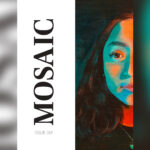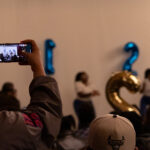Students in SOCI 4352 at Texas A&M University-San Antonio put on their thinking caps instead of Mickey Mouse ears.
Deconstructing Disney: Race, Gender and Age teaches them to confront the empire of Walt Disney on discriminatory portrayals of beloved characters. Students reanalyze familiar childhood cartoons and challenge their perceptions of them.
The sociology elective taught by Dr. Vicky Elias, associate professor of sociology, examines how social biases are presented in media from the popular entertainment conglomerate.
The eight-week class, which is open to juniors and seniors, was first taught as a selective topics class before being implemented into the curriculum at A&M-San Antonio about six years ago, Elias said. Originally taught in the fall, the class will now be offered in spring 2022 due to high demand.
“It’s not a class that people think of as normal but a lot of different colleges have a similar class,” Elias said. “The whole idea of merging entertainment and education came through Walt Disney. He’s the one who coined the phrase ‘edutainment.’”
Oregon State University and the University of North Carolina at Charlotte offer a similar class titled “Disney: Gender, Race and Empire” as part of their Women, Gender and Sexuality programs. The aim of these courses is to explore issues of inequality by using Disney princess films as the context.
“It’s a nice way to look at society because if we just look directly at society, our own ideas and biases get into place, and sometimes it’s hard to see things,” Elias said. “And when we look at a reflection of our society like in art, it’s sometimes easier to see some of those.”
Sociology senior Lourdes Izarraras-Medina, who uses they/them pronouns, said they took Deconstructing Disney as an elective because they liked the idea of a class that uses popular culture to focus on social issues. They have enjoyed analyzing Disney films to understand how the content influences society and children.
“I have been focusing a lot on Tiana from ‘Princess and the Frog’, and how she was very whitewashed and has Eurocentric features despite being African American,” Izarraras-Medina said.
While Tiana from “The Princess and the Frog” was recognized as Disney’s first African American princess, through the class sociology junior Elvira Garcia analyzed how Tiana’s character is shaped by racial stereotypes and spent most of the film in the form of a frog, lessening the impact of her presence. Garcia said the class is reshaping her perspective of the Disney culture and how she once thought of the films she grew up with.
“In the class we’ve so far talked about ageism, how they treat women, even villains being portrayed as transgender people,” Garcia said. “I wonder how a child perceives it because as a child I didn’t think about any of this stuff.”
The Walt Disney Company, which will be entering its centennial year in 2023, has crafted a positive reputation and cemented its legacy as a household name by creating wholesome entertainment suitable for all ages. But while parents may trust Disney content and not question it, there are some things in Disney films that we might want to think about, Elias said.
“We talk not just about what the content is, but also whether or not we’ve noticed that content and how it affects us now. If we didn’t notice it, why didn’t we notice it? And why does it feel almost unpatriotic to challenge Disney?” Elias said.
Elias will teach Deconstructing Disney again in spring 2022 as an online synchronous course.







